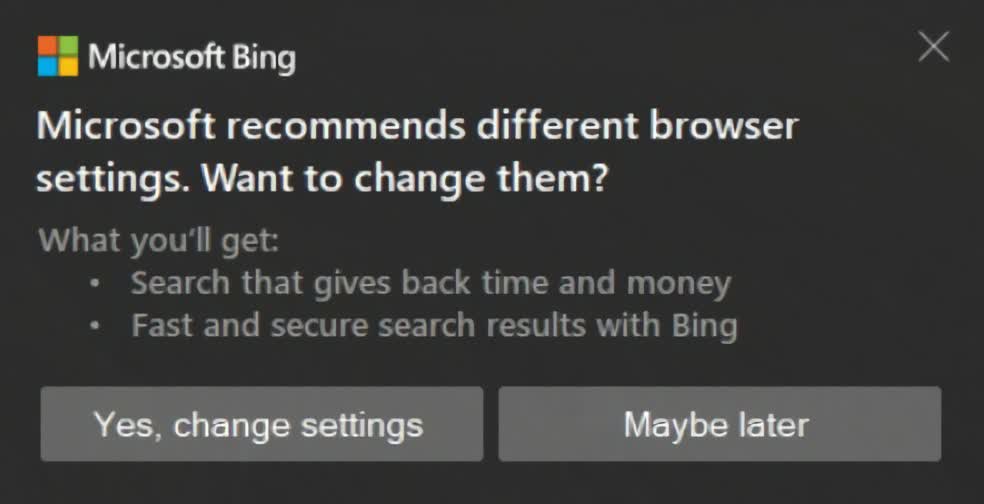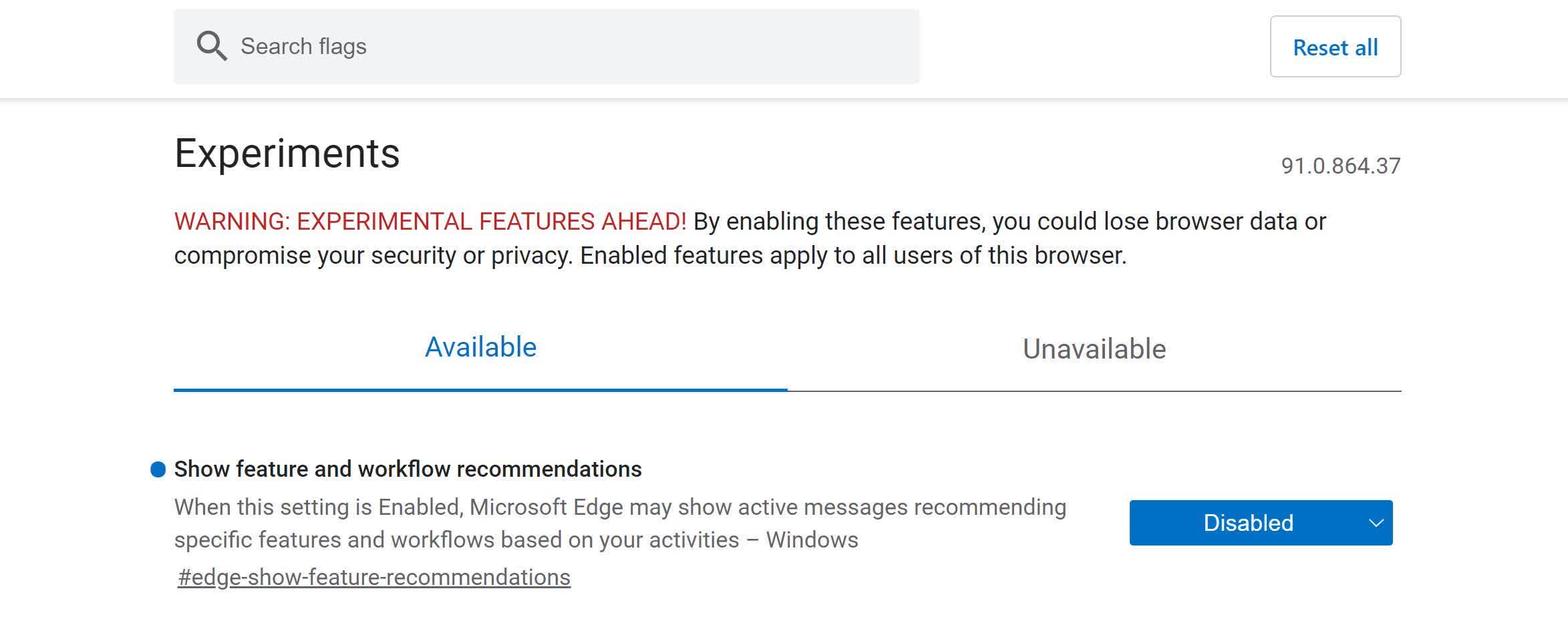Microsoft brings back nagging Bing alerts in Windows 10
Facepalm: Given its history with the Windows ten upgrade nags, one might imagine Microsoft understands how much people hate nagging popular-up alerts. But that hasn't stopped the company from bringing back one of its almost hated campaigns that utilizes the irritating feature; gear up for ads advising yous to switch to the Bing search engine.
Windows Latest reports that the nags returned as office of the Border 91 update for Microsoft'south spider web browser. Those who haven't prepare Edge every bit their default browser and users who manually inverse to a different search engine will run across the prompts.
There are reportedly two ads for Bing: one promoting the "latest trending news" on its homepage'due south MSN newsfeed, and the engine'due south secure/individual results; the other claiming users can save money online by switching to Bing in countries where the Microsoft Rewards feature is available.

In typical Microsoft fashion, the prompts don't come with a "No, thanks" option. You can either select "Yep, modify settings" or hit "Maybe later," suggesting that dismissing the prompt will only meet it return in the future.
You might remember how, in 2022, the company's Get Windows 10 (GWX) popular-upwardly, which offered the choices of "Upgrade Now" or "Outset Download, Upgrade later," was changed so anyone selecting the box'south corner 10 unwittingly gave consent for the upgrade to take identify at the scheduled fourth dimension. Microsoft later admitted that these malware-like tactics "went also far."
The adept news is that there is a style to get rid of these Bing notifications permanently. Simply launch Edge and enter "edge://flags" in the URL bar to show the browser's experimental features, then discover "Show feature and workflow recommendations" and alter the drop-down bill of fare to "Disabled."

Despite alluring praise and more users since switching to a Chromium-based version, Edge holds a mere 3.39% of the browser market, whereas Chrome boasts a 64.v% share. Co-ordinate to Statcounter, it'south an even grimmer pic for Bing, whose ii.nine% search engine market share pales in comparing to Google's 92.2%.
Source: https://www.techspot.com/news/89886-microsoft-brings-back-nagging-bing-alerts-windows-10.html
Posted by: mcdowelllittevers.blogspot.com


0 Response to "Microsoft brings back nagging Bing alerts in Windows 10"
Post a Comment